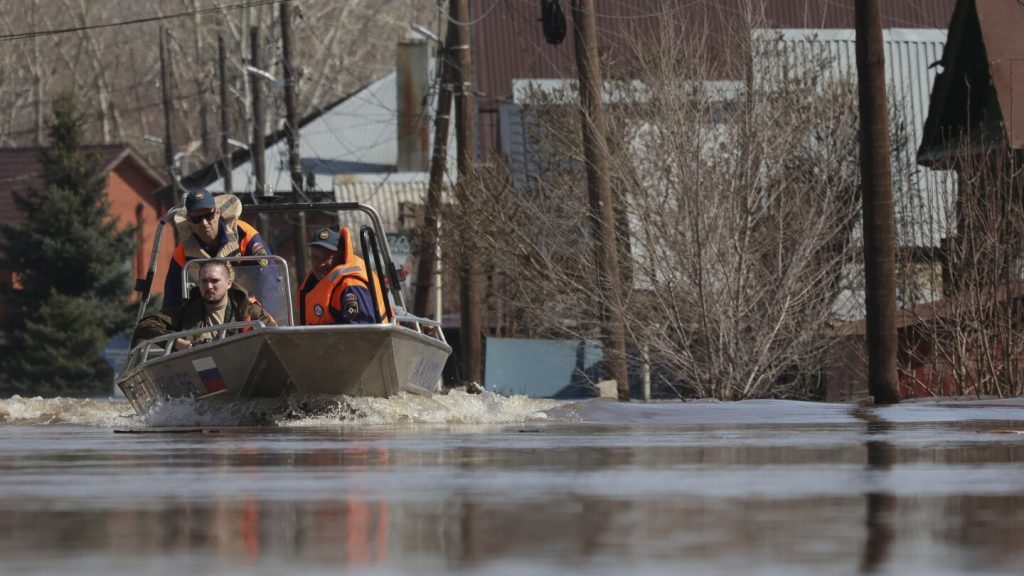Authorities in both Russia and Kazakhstan are working to address the devastating floods that have hit the region, particularly along the Ural River. In the Orenburg region of Russia, nearly 12,000 houses have been flooded, and evacuations of thousands of residents have taken place. A state of emergency has been declared in the region as water levels continue to rise, putting more homes at risk of flooding. The situation is most severe in the city of Orenburg, where the water level in the Ural River has reached a historical peak. The overall damage from the floods is estimated to exceed $428 million.
In response to the floods, Russian emergency services have been working to evacuate affected residents and provide assistance. So far, a total of 7,800 people have been evacuated from the flooded areas. The Orenburg governor reported that 16 state medical facilities have also been flooded, adding to the severity of the situation. Additionally, 20,000 people are at risk of imminent flooding as water levels continue to rise in the region. The damage caused by the floods is expected to have long-lasting effects on the affected communities, with reconstruction efforts likely to require significant resources and support.
The impact of the floods is not limited to Russia, as neighboring Kazakhstan has also been affected. Authorities in the regions of Kurgan and Tyumen, along the Kazakhstan border, are preparing for possible floods as water levels rise in local rivers. In Kazakhstan, a state of emergency has been declared in 10 out of 17 regions, with over 98,000 people evacuated from affected areas since March. The floods in Kazakhstan have been described by President Kassym-Jomart Tokayev as a natural disaster of unprecedented scale and consequences. Footage from the flooded regions in Kazakhstan shows streets, fields, and houses submerged in water, highlighting the devastation caused by the ongoing floods in the region.
The international response to the floods in Russia and Kazakhstan has been crucial in providing support and assistance to the affected populations. Russian President Vladimir Putin has been briefed on the situation in Orenburg and the efforts being made to address the floods. The Russian Emergency Situation Ministry has deployed rescuers to assist with evacuations and provide aid to those affected. In Kazakhstan, President Tokayev has emphasized the need for coordinated efforts to address the disaster and provide assistance to those impacted. The scale of the floods and the widespread damage caused highlight the importance of international cooperation in responding to natural disasters and supporting affected communities.
As the floods continue to threaten more homes and communities in both Russia and Kazakhstan, it is evident that the long-term effects of the disaster will require extensive reconstruction and recovery efforts. The devastation caused by the floods in the region has prompted calls for increased preparedness and response measures to address the impacts of natural disasters in the future. As authorities work to provide assistance to those affected and mitigate the effects of the floods, the focus remains on ensuring the safety and well-being of the populations in the affected regions. International support and cooperation will be vital in facilitating the recovery and rebuilding efforts in the aftermath of the floods, with a shared commitment to addressing the needs of those affected by the disaster.


